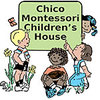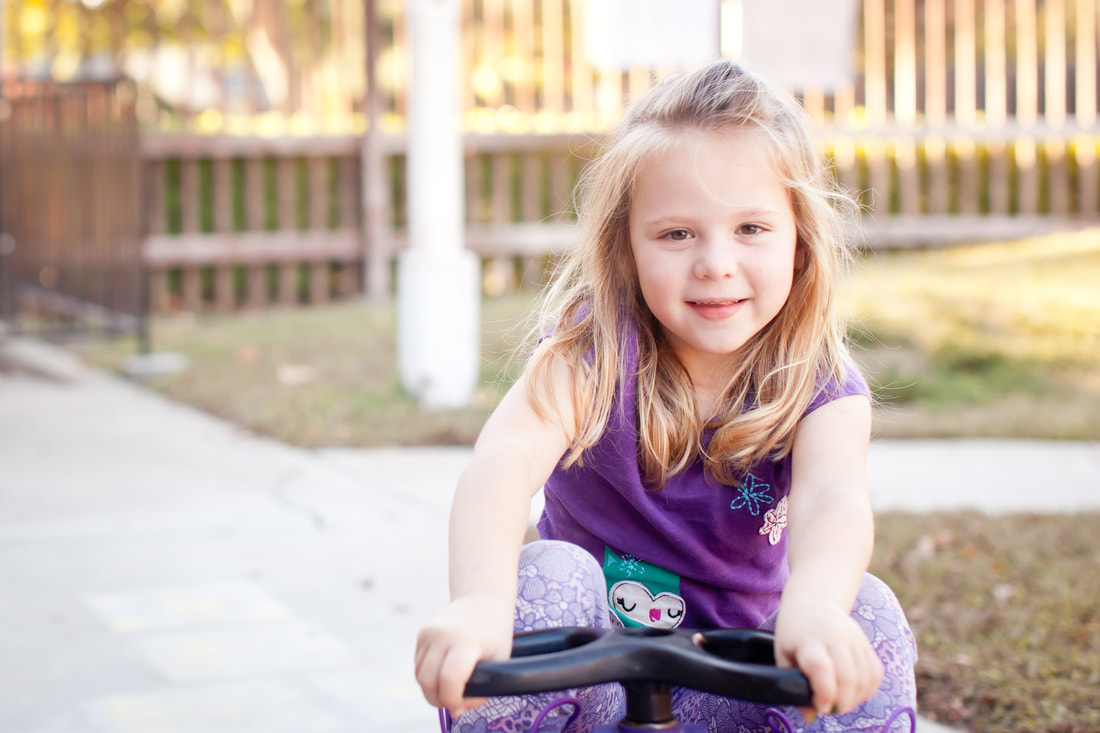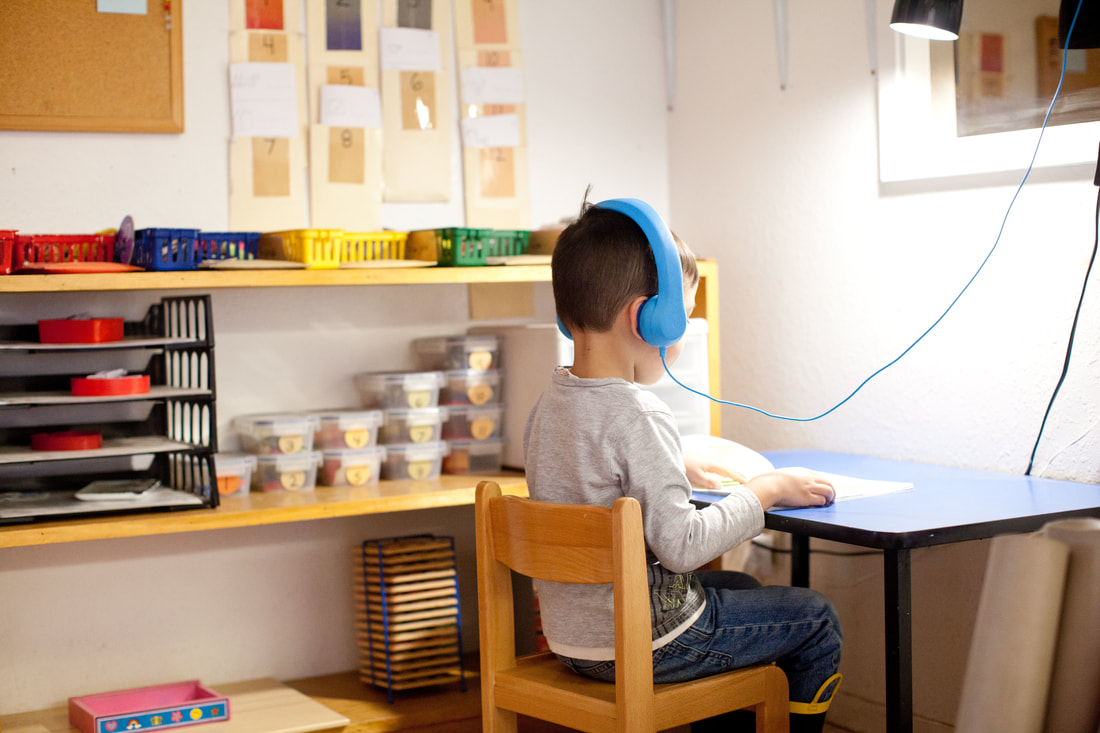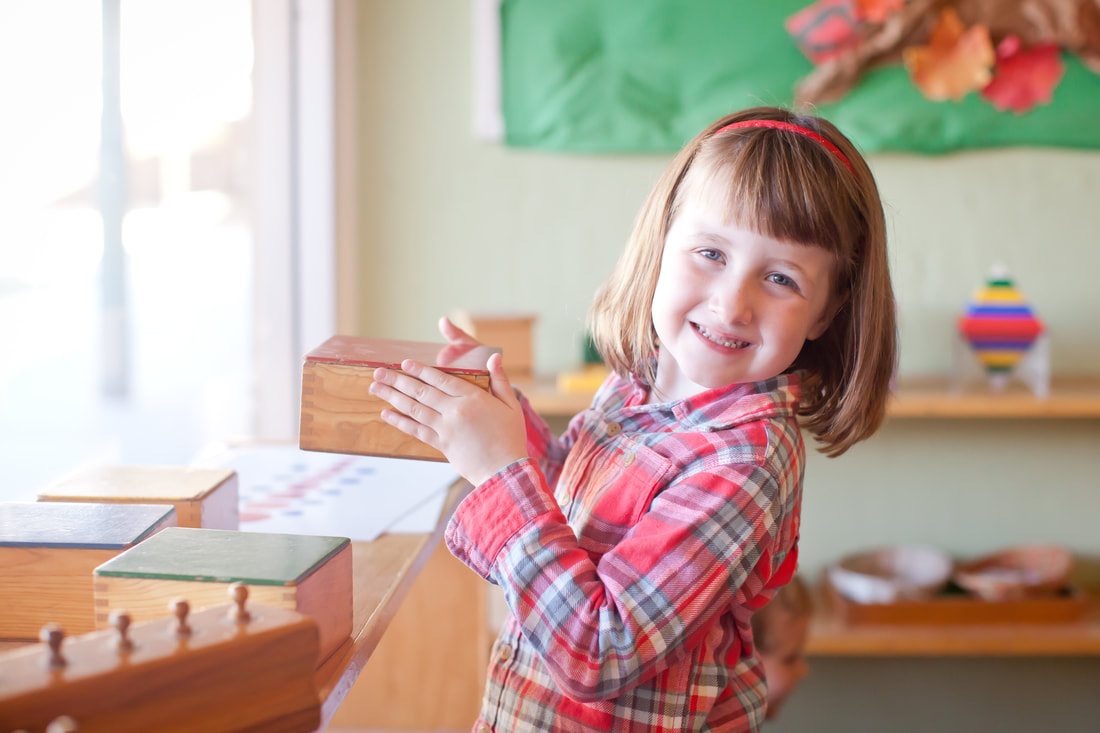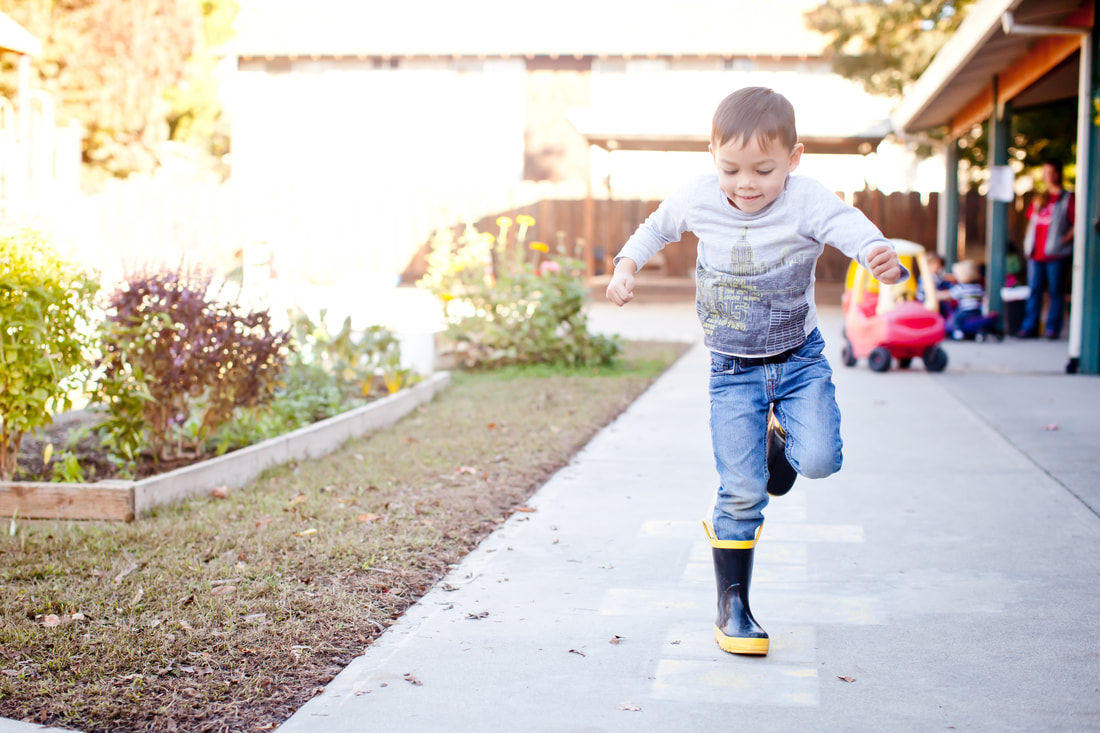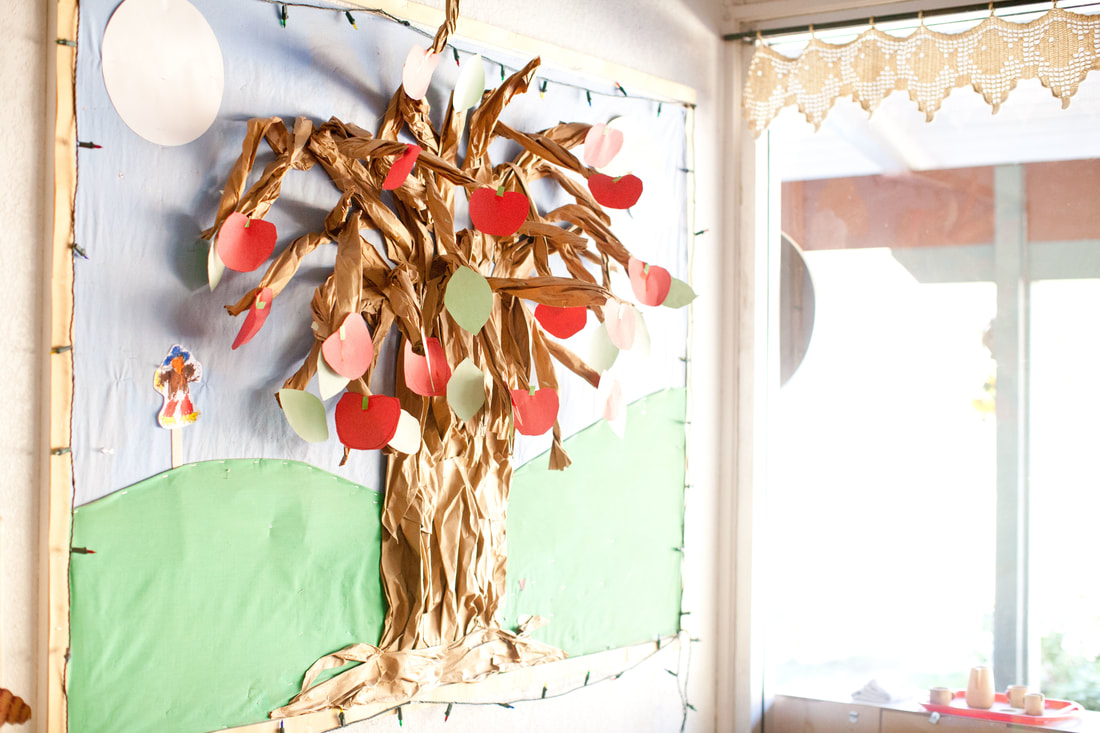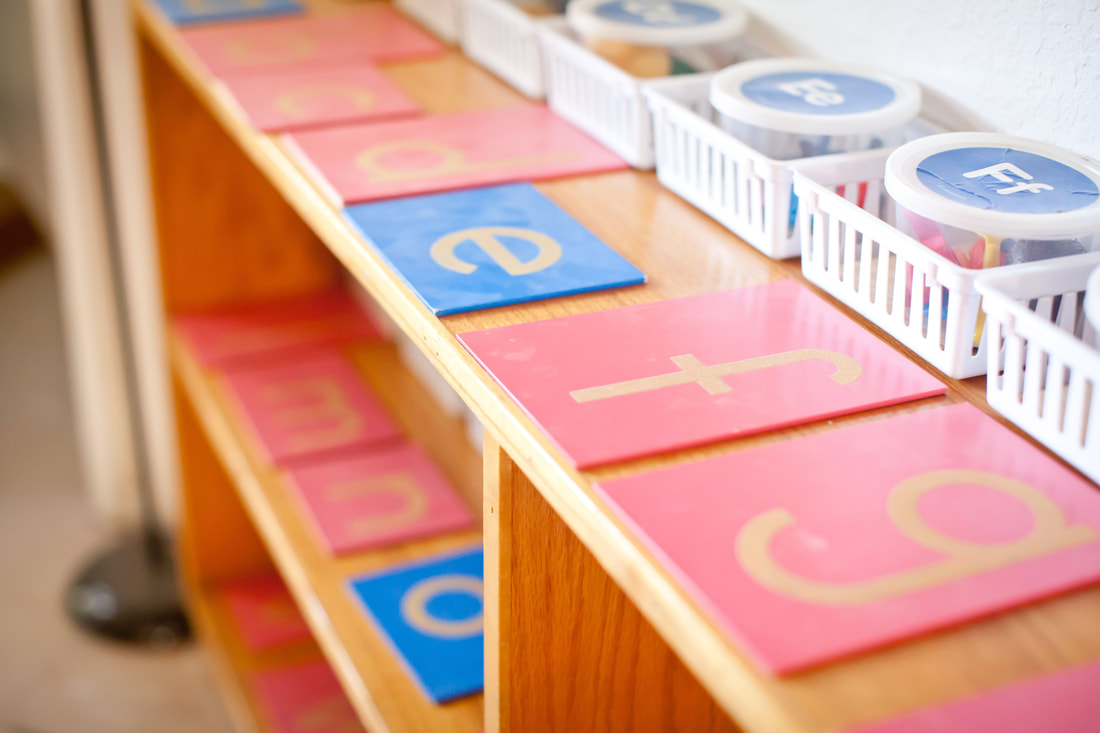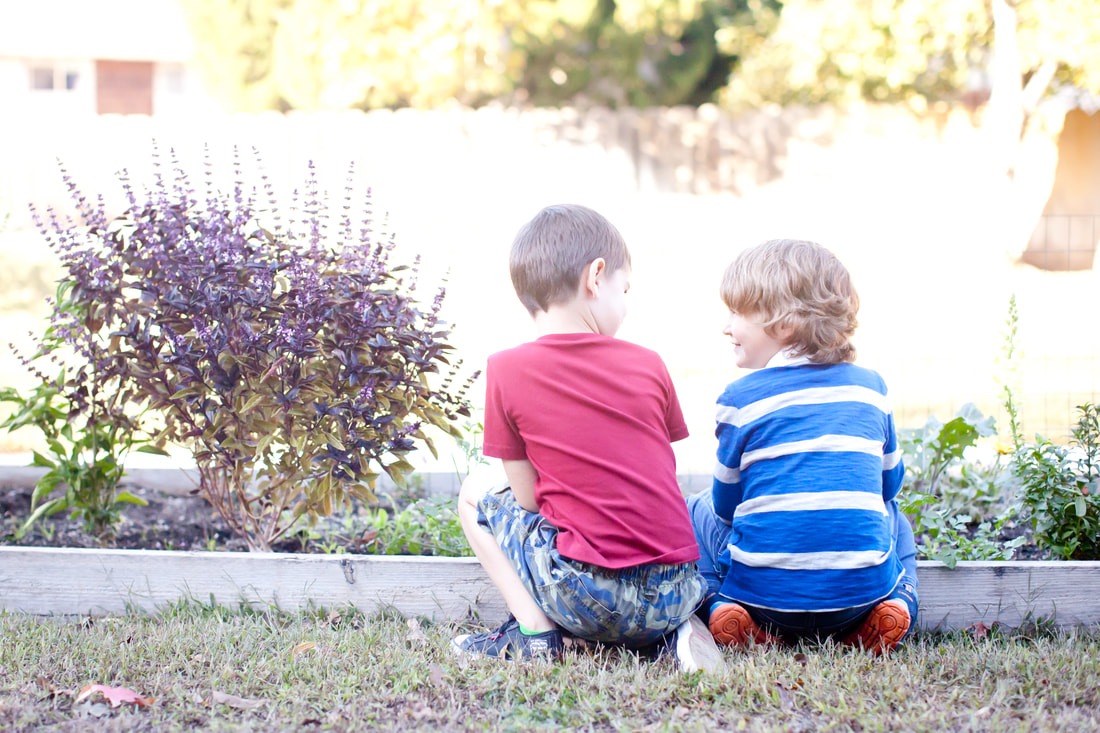THE MONTESSORI METHOD
“Education is acquired not by listening to words but by experiences.” -Maria Montessori
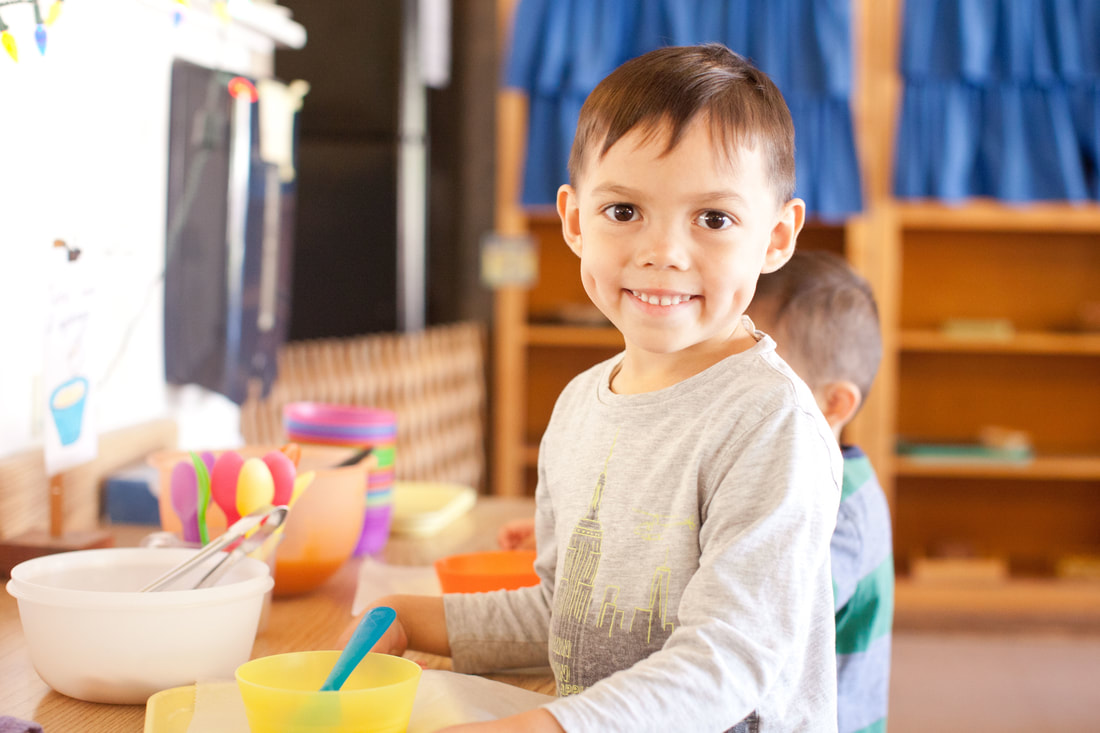
Chico Montessori Children's House was founded on the principles of the Montessori Teaching Method: an approach to education which emphasizes the potential of the young child. The Montessori Method attempts to develop this potential in a prepared environment with the aid of specially trained teachers and uniquely designed learning materials which appeal to the child. The prepared environment is an ordered arrangement of learning materials in a non-competitive atmosphere which helps each child develop at his or her own rate.
Dr. Maria Montessori--Italy's first female doctor and an early advocate of children's rights--believed that the preschool years, when a child is developing a concept of his or herself, are fundamental to future fulfillment. She was distressed by the usual rigid teaching techniques of the time in Europe and noted how many children were blocked in their learning efforts by traditional teaching methods. In 1907, feeling that young children have the potential for self-learning, she began to develop this potential with a sensorial approach: teaching a small group of poor children in Rome by engaging their natural interest in exploring the world through their senses.
The Montessori Method is based on the belief that children need to acquire basic skills before participating in a competitive learning situation. Children who have had the benefit of a Montessori environment are later free to devote themselves to the development of their intellectual faculties.
Dr. Montessori believed that self-motivation is the impulse to learning. The teacher prepares the environment, programs and activities, and functions as the reference person who offers stimulation. But it is the child, however, who learns and motivates him/herself to persist in their chosen work or task. This method allows children to acquire inner discipline. Habits of concentration, stick-to-itiveness, and thorough focus established in early childhood produce a confident and competent learner in later years.
Montessori education today helps each child develop within him/herself the foundations for a lifetime of creative learning: concentration, a sense of order, independence, self-discipline, and a love and desire for learning. Children are free to move about in the classroom at will; to talk and work with other children; and to work with any learning apparatus that are made available for use in the classroom. Children develop respect for others and for their environment by learning not to disturb others' work; to respect the equipment that is so important to their development; and to find self motivation through work and play.
Dr. Maria Montessori--Italy's first female doctor and an early advocate of children's rights--believed that the preschool years, when a child is developing a concept of his or herself, are fundamental to future fulfillment. She was distressed by the usual rigid teaching techniques of the time in Europe and noted how many children were blocked in their learning efforts by traditional teaching methods. In 1907, feeling that young children have the potential for self-learning, she began to develop this potential with a sensorial approach: teaching a small group of poor children in Rome by engaging their natural interest in exploring the world through their senses.
The Montessori Method is based on the belief that children need to acquire basic skills before participating in a competitive learning situation. Children who have had the benefit of a Montessori environment are later free to devote themselves to the development of their intellectual faculties.
Dr. Montessori believed that self-motivation is the impulse to learning. The teacher prepares the environment, programs and activities, and functions as the reference person who offers stimulation. But it is the child, however, who learns and motivates him/herself to persist in their chosen work or task. This method allows children to acquire inner discipline. Habits of concentration, stick-to-itiveness, and thorough focus established in early childhood produce a confident and competent learner in later years.
Montessori education today helps each child develop within him/herself the foundations for a lifetime of creative learning: concentration, a sense of order, independence, self-discipline, and a love and desire for learning. Children are free to move about in the classroom at will; to talk and work with other children; and to work with any learning apparatus that are made available for use in the classroom. Children develop respect for others and for their environment by learning not to disturb others' work; to respect the equipment that is so important to their development; and to find self motivation through work and play.
